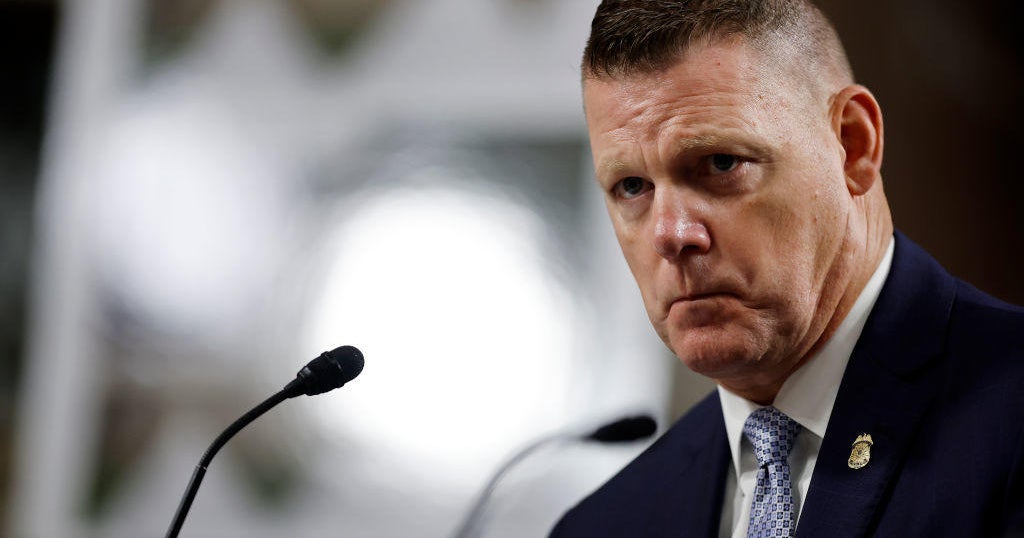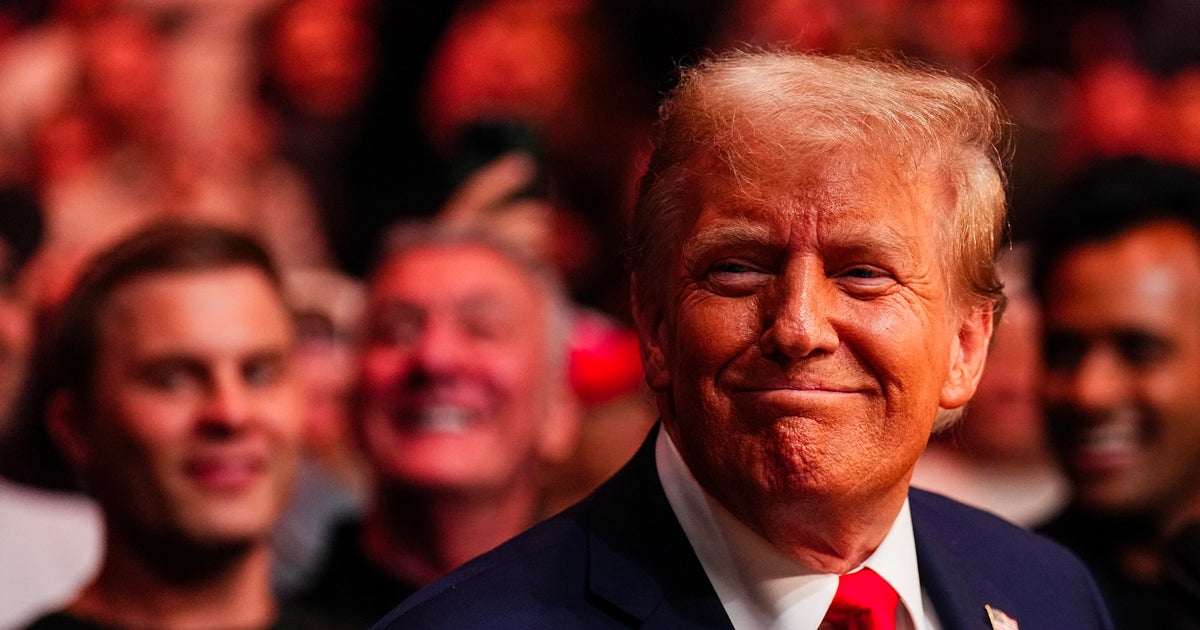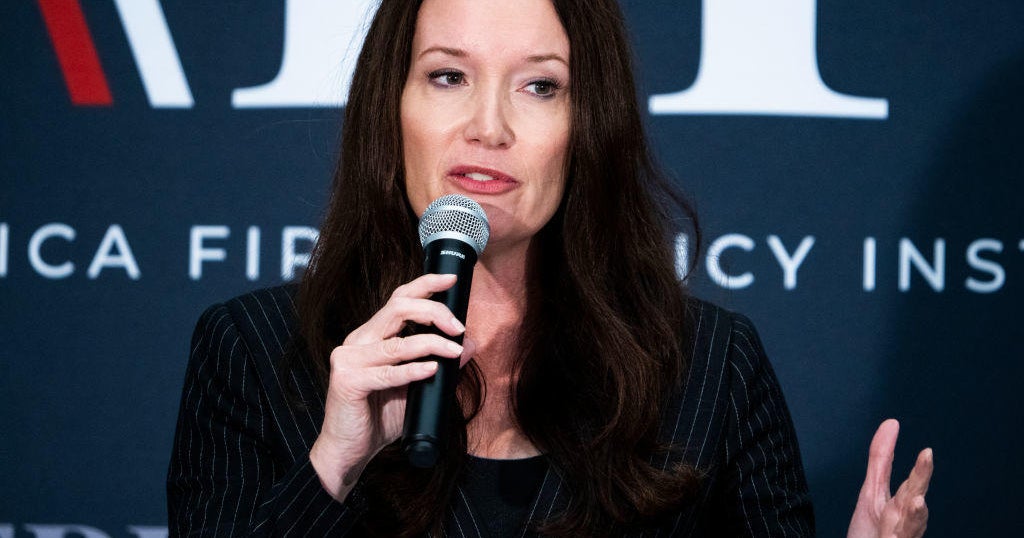CBS News
Butler rally was first Trump event of 2024 with Secret Service snipers, officials say

When U.S. Secret Service counter snipers pulled up to a farm grounds in Butler, Pennsylvania, on July 10, just three days before the assassination attempt on former President Donald Trump, it was the first time this campaign cycle that the highly trained, tactical unit had been deployed to secure an event for the former president.
“It was the first time Secret Service counter snipers were deployed to support” a Trump event this year, Secret Service Acting Director Ronald Rowe confirmed to CBS News during a news conference Friday, held at the federal law enforcement agency’s Washington, D.C., headquarters.
On July 13, a gunman opened fire on Trump from a rooftop roughly 400 feet away from the former president during an outdoor campaign rally in Butler, Pennsylvania. A CBS News video analysis determined that the gunman, 20-year-old Thomas Crooks, fired eight shots in under six seconds before he was fatally struck by a round from one of the counter snipers — a fact later confirmed by the FBI.
Among a litany of security lapses Rowe disclosed Friday afternoon, the acting director told reporters that Secret Service counter snipers did not have radio communications with local law enforcement that day. Instead, the agents relied on text messaging, with local Butler County tactical teams sending Secret Service snipers two pictures of Crooks via text message at 5:45 p.m., about 26 minutes before shots were fired.
At that point, neither local law enforcement nor Secret Service knew Crooks had a gun. Rowe revealed that neither the counter snipers nor Trump’s security detail were aware that the suspicious individual — first spotted by local law enforcement roughly 75 minutes earlier — was armed until the shots were fired.
“What I’ve directed now is that everybody should be using the radio net,” Rowe said. “And if we don’t have the ability to pipe in or leverage that counterpart system, that’s one of the things that we’re looking at now.”
Communications were also disjointed, Rowe explained, because there were two separate command posts used that day — a “Secret Service security room” and a separate command post staffed with local law enforcement. Only one Pennsylvania State Police officer was assigned to the agency’s security room, and there were no Secret Service personnel within local law enforcement’s command post, a situation that Rowe described as “unique,” meriting further investigation.
“If the large majority of our partners are in a unified command post or in a different location, we need to probably be there too,” Rowe added.
According to a Secret Service timeline unveiled by Rowe on Friday, at 5:53 p.m., the leader for the U.S. Secret Service counter snipers texted their team that local law enforcement was “looking for a suspicious individual outside of the perimeter lurking around the AGR building,” referring to the roof from which the shooter later opened fire on Trump.
“At this time, Secret Service personnel are operating with the knowledge that local law enforcement was working on an issue of a suspicious individual,” Rowe said. “The concept of local law enforcement working on such issues is common at sites.”
Rowe noted that there were multiple suspicious persons reported to the Secret Service on July 13, along with over 100 calls for local law enforcement to address issues ranging from general help requests to medical problems to missing children reports.
At 6:11 p.m., moments before the shooting, a member of Trump’s protective detail contacted a counterpart within Secret Service’s Pittsburgh field office to follow up on that earlier communication, but it was too late. As the agents spoke on the phone, shots rang out.
“Right in the middle of that phone conversation, the shots begin firing,” Rowe said.
Rowe described the lack of coverage on the roof where Crooks was situated as “a Secret Service failure,” adding, “the roofline should have been covered. We should have had better eyes on that.”
The Secret Service also failed to deploy a drone at the rally site, Rowe said, with the agency also turning down an offer from local law enforcement to use their drone. The acting director said he was unsure why that offer was declined, calling it another protocol issue that will be reviewed.
“One of the other changes that I implemented when I became the acting director, is we are now going to leverage the use of unmanned aerial systems at sites now,” Rowe said.
The assassination attempt has prompted heightened scrutiny of Secret Service operations, with several departmental and congressional investigations underway. Rowe took over leadership of the agency last week, after Kimberly Cheatle resigned amid pressure from lawmakers.
The Senate Appropriations Committee on Wednesday delayed plans to meet and consider next year’s funding for the U.S. Secret Service.
In testimony Tuesday before the Senate Homeland Security and Judiciary committees, Rowe conceded that the July 13 shooting “made me ashamed,” adding that he “cannot defend why that roof was not better secured.”
— Scott MacFarlane and Kaia Hubbard contributed to this report.
CBS News
Sen. Tammy Duckworth says Pete Hegseth is “flat-out wrong” about women in combat roles

Watch CBS News
Be the first to know
Get browser notifications for breaking news, live events, and exclusive reporting.
CBS News
Sen. Duckworth says Trump defense secretary pick is “flat-out wrong” about women in combat roles

Democratic Sen. Tammy Duckworth said Sunday that Pete Hegseth, President-elect Donald Trump’s pick for defense secretary is “flat-out wrong” in his view that women should not serve in the military in combat roles.
“Our military could not go to war without the women who wear this uniform,” Duckworth said on “Face the Nation with Margaret Brennan.” “And frankly, America’s daughters are just as capable of defending liberty and freedom as her sons.”
Trump tapped Hegseth, a former Fox News host and Army veteran who served in Iraq and Afghanistan as his pick to head the Defense Department earlier this month. The 44-year-old has drawn criticism for his stance on women in combat roles, along with his level of experience.
Duckworth, who in 2004 deployed to Iraq as a Blackhawk helicopter pilot and sustained severe injuries when her helicopter was hit by an RPG, outlined that women who serve in combat roles have met the same standards as men, passing rigorous testing. She said Hegseth’s position “just shows his lack of understanding of where our military is,” while arguing that he’s “inordinately unqualified for the position.”
CBS News
“Our military could not go to war without the 220,000-plus women who serve in uniform,” Duckworth said. She added that having women in the military “does make us more effective, does make us more lethal.”
Hegseth has also drawn scrutiny amid recently unearthed details about an investigation into an alleged sexual assault in 2017. Hegseth denies the allegation and characterized the incident as a consensual encounter. The Monterey County district attorney’s office declined to file charges as none were “supported by proof beyond a reasonable doubt.” His lawyer has acknowledged that Hegseth paid a confidential financial settlement to the woman out of concern that the allegation would jeopardize his employment.
Duckworth, an Illinois Democrat who serves on the Armed Services and Foreign Relations Committees, said it’s “really troubling” that Trump would nominate someone who “has admitted that he’s paid off a victim who has claimed rape allegations against him.”
“This is not the kind of person you want to lead the Department of Defense,” she added.
The comments come after Trump announced a slew of picks for top posts in his administration in recent days. Meanwhile, one pick — former Rep. Matt Gaetz for attorney general — has already withdrawn his name from consideration after he faced intense scrutiny amid a House Ethics Committee investigation and a tenuous path to Senate confirmation.
While Duckworth acknowledged that she’s glad her Senate Republicans “held the line” on Gaetz and also elected Sen. John Thune as leader over a candidate favored by many in Trump’s orbit, she said she’s “deeply concerned” her Republican colleagues will green light Trump’s nominees.
“From what I’m hearing from my Republican colleagues on everything from defense secretary to other posts, it sounds like they are ready to roll over for Mr. Trump,” Duckworth said.
But Duckworth didn’t rule out supporting some of the nominees herself during the Senate confirmation process, pledged to evaluate each candidate based on their ability to do the job, and their willingness to put the needs of the American people before “a retribution campaign for Mr. Trump.”
Meanwhile, a CBS News poll released on Sunday found that 33% of Americans say Hegseth is a “good choice” for defense secretary, including 64% of Trump voters. But 39% of Americans said they hadn’t heard enough yet about the pick. More broadly, Americans generally say they want Trump to appoint people who’ll speak their minds and who have experience in the field or agency they’ll run.
Sen. Rand Paul, a Kentucky Republican who also appeared on “Face the Nation” on Sunday, said he believes that Hegseth can run the massive Defense Department, despite his lack of experience managing a large organization. Though he did not address Hegseth’s comments about women in combat roles, Paul said he believes the “vast majority of people” support leaders who are picked based on merit, citing Hegseth’s criticism of the Pentagon for what he says has been a move away from merit-based hiring and toward hiring based on “racial characteristics.”
CBS News
Israeli strike kills Lebanese soldier as Hezbollah fires at least 185 rockets at Israel

Hezbollah fired at least 185 rockets and other projectiles into Israel on Sunday, wounding seven people in the militant group’s heaviest barrage in several days, in response to deadly Israeli strikes in Beirut while negotiators pressed on with cease-fire efforts to halt the war.
Meanwhile, an Israeli strike on a Lebanese army center killed one soldier and wounded 18 others on the southwestern coastal road between Tyre and Naqoura, Lebanon’s military said. Israel’s military expressed regret and said the strike occurred in an area of combat against Hezbollah, adding that its operations are directed solely against the militants. The strike was under review.
Hussein Malla / AP
Israeli strikes have killed over 40 Lebanese troops since the start of the war between Israel and Hezbollah, even as Lebanon’s military has largely kept to the sidelines.
Lebanon’s caretaker prime minister, Najib Mikati, condemned it as an assault on U.S.-led cease-fire efforts, calling it a “direct, bloody message rejecting all efforts and ongoing contacts” to end the war.
“(Israel is) again writing in Lebanese blood a brazen rejection of the solution that is being discussed,” a statement from his office read.
The strike occurred in southwestern Lebanon on the coastal road between Tyre and Naqoura, where there has been heavy fighting between Israel and Hezbollah.
Hezbollah began firing rockets, missiles and drones into Israel after Hamas’ Oct. 7, 2023, attack out of the Gaza Strip ignited the war there. Hezbollah has portrayed the attacks as an act of solidarity with the Palestinians and Hamas. Iran supports both armed groups.
Israel has launched retaliatory airstrikes since the rocket fire began, and in September the low-level conflict erupted into all-out war, as Israel launched waves of airstrikes across large parts of Lebanon and killed Hezbollah’s top leader, Hassan Nasrallah, and several of his top commanders.
Hezbollah fired a total of around 160 rockets and other projectiles into Israel on Sunday, some of which were intercepted, the Israeli military said.
Oded Balilty / AP
Israel’s Magen David Adom rescue service said it was treating two people in the central city of Petah Tikva, a 23-year-old man who was lightly wounded by a blast and a 70-year-old woman suffering from smoke inhalation from a car that caught fire. The first responders said they treated three other people in northern Israel, closer to the border, including a 60-year-old man in serious condition.
It was unclear whether the injuries and damage were caused by the rockets or interceptors.
Israeli airstrikes early Saturday pounded central Beirut, killing at least 20 people and wounding 66, according to Lebanon’s Health Ministry.
Israeli attacks have killed more than 3,500 people in Lebanon, according to Lebanon’s Health Ministry. The fighting has displaced about 1.2 million people, or a quarter of Lebanon’s population.
On the Israeli side, about 90 soldiers and nearly 50 civilians have been killed by bombardments in northern Israel and in battle following Israel’s ground invasion in early October. Around 60,000 Israelis have been displaced from the country’s north.
The Biden administration has spent months trying to broker a cease-fire, and U.S. envoy Amos Hochstein was back in the region last week.
The European Union’s top diplomat called for more pressure on both Israel and Hezbollah to reach a deal, saying one was “pending with a final agreement from the Israeli government.”
Josep Borrell spoke Sunday after meeting with Mikati and Lebanese Parliament Speaker Nabih Berri, a Hezbollah ally who has been mediating with the group.
Borrell said the EU is ready to allocate 200 million euros ($208m) to assist the Lebanese military, which would deploy additional forces to the south.
The emerging agreement would pave the way for the withdrawal of Hezbollah militants and Israeli troops from southern Lebanon below the Litani River in accordance with the U.N. Security Council resolution that ended the 2006 war. Lebanese troops would patrol the area, with the presence of U.N. peacekeepers.
Lebanon’s army reflects the religious diversity of the country and is respected as a national institution, but it does not have the military capability to impose its will on Hezbollah or resist Israel’s invasion.










